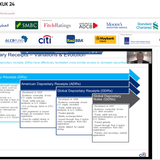The international context also helps. Unlike Dilma, Temer has had some luck, albeit not as much as Lula did. The international environment is not as favourable as in the previous decade, but all the same, the global economy is slowly gaining traction, in disseminated form, helping to produce a situation of low currency volatility. Therefore, despite the political crisis, the exchange rate with the dollar has only weakened moderately. This is good news for monetary policy.
Judging from his recent decisions, such as the change in the president of BNDES, the release of some pork-barrel spending allocations, and adjustments in the new bill of law for refinancing state governments’ debts, Temer intends to make economic policy more flexible. The same can be said of the proposed social security reform.
It’s not yet clear how extensive this relaxation in economic policy will be. But certainly, by conviction and by impossibility, there is no coming back to the previous course.
The discourse of the new BNDES president, Paulo Rabello de Castro, offers some hints. On the one hand, he advocates greater activism of BNDES at the moment, by stating that “if the country is lacking in development, it is lacking in more action by the BNDES”, and it is not clear if he will maintain the plan to change the Long-Term Interest rate (TJLP), for which purpose the provisional measure issued still needs approval from Congress.
On the other hand, his words do not diverge radically from the policy line adopted by Maria Sílvia Marques, whose pillar was a return of the BNDES to its complementary role in the credit market, in counterpoint to the more aggressive lending that characterised recent years, which did not have a great effect on the capital expenditure rate of recipients.
The fact of the matter is that the room for action of BNDES is more limited now than many people imagine.
The amount of new money provided by the BNDES to intermediaries for onlending has declined by 58% from the peak in 2013. Its participation is 43% of the total, below the historical average of 50%, and smaller companies, which account for 54% of the financing through onlending, are particularly constrained.
Besides the contraction of demand for loans for capital expenditures, banks today are not as willing as in the past to assume the credit risks of these transactions. The reason is largely the legal uncertainty and consequent difficulty of recovering assets by banks. This means that a more plentiful supply of credit by BNDES is no guarantee that this money will reach the endpoint. Other paths need to be found, not all passing through the BNDES.
On fiscal policy, even if the government winds up obtaining revenues not initially envisioned in the budget, the challenges to meet the budget target have increased, since tax revenues can be affected by economic weakness now exacerbated by the political crisis. The release of expenditures will need to occur in droplets.
The space to relax economic policy is therefore very limited. Responsible economic management is a condition for the economic team to remain cohesive.
More importantly, it is essential that any economic stimuli not counteract the work of the Central Bank. A government that yields to pressures for inefficient and untimely policies can provoke a more volatile exchange rate and higher structural interest rate, jeopardizing the monetary easing. Reducing the leeway to cut the interest rate would be a mistake, because monetary policy is the only effective instrument available to produce an economic rebound in the short-medium term.
It would be better to concentrate on rebuilding support in Congress to keep the social security reform flame burning. What the government must avoid now is to hamper the work of the Central Bank.









